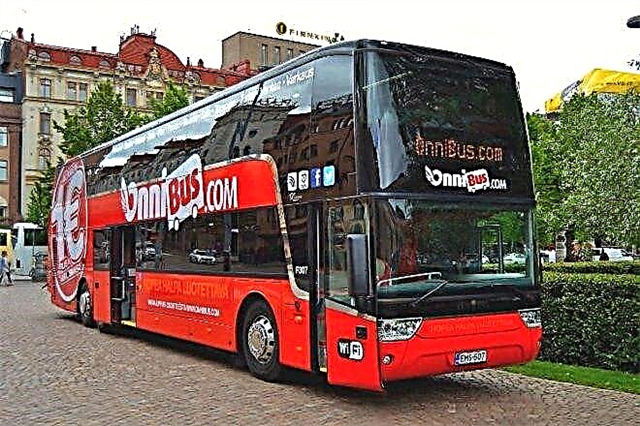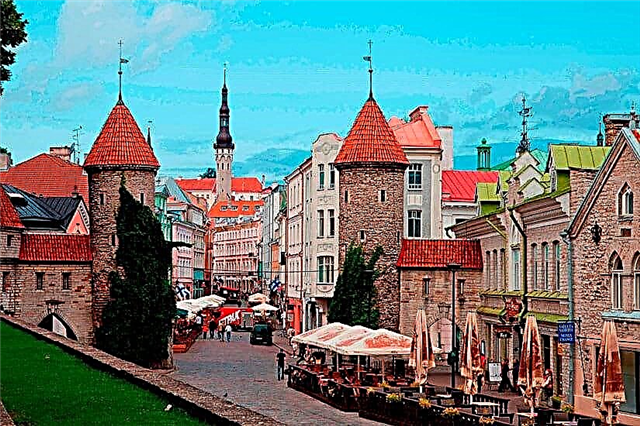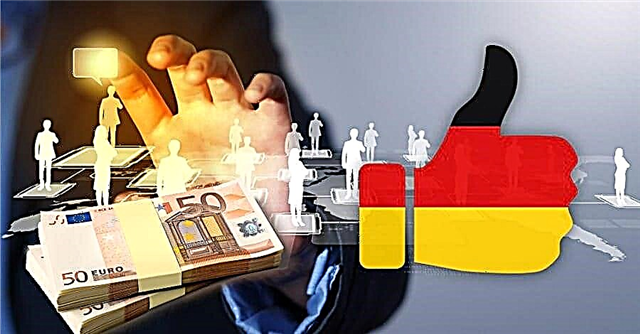Germany is considered one of the most favorable countries for trade. The state supports small and medium-sized businesses, they are the backbone of the German economy.
Business immigration to Germany
Business immigration is an opportunity to obtain a residence permit in a foreign country by moving an existing business there, buying it or opening a new one. People entering the state for business purposes are issued a business visa.

The most profitable option in the EU is Germany. According to statistics before 80% cafes and restaurants in Germany are owned by foreigners. Most often, Russian immigrants develop small and medium-sized businesses, less often joint ones. Popular tourist and restaurant spheres, beauty salons, grocery stores.
Immigration conditions
Based on the Law on Foreigners (Aufenthaltsgesetz), in order to obtain a residence permit, the following conditions must be met:
- The product offered to immigrants is in demand in certain regions of Germany;
- The activity is expedient, it will help the economy of the state;
- A sufficient amount of finance in the account of the immigrant.
From August 1, 2012, there are no restrictions on the number of employees, minimum amounts on the account, etc. If these conditions are met, you can get down to business.

The sequence of actions is as follows:
- Submission of a business plan (verified by the regional Chamber of Commerce and Industry);
- Approval by the Ministry of the application for the conduct of the case;
- Registration of your own company in Germany or purchase of a ready-made one;
- Preparation of documents, registration of a residence permit;
- Registration of permanent residence;
- Obtaining citizenship.
A well-written business plan is the basis for success. It is provided to officials who give permission to conduct business. It is drawn up in competent German, without errors, and should look presentable.
The document indicates the following information:
You May Also Like
- Company name;
- Immediate goals and objectives, form of ownership, what target audience is the product aimed at, size of investment;
- Detailed business development plan;
- What is the superiority over competitors;
- Biography of the immigrant, experience and qualifications of him and his employees;
- Staff, approximate salary, working conditions;
- Marketing strategies;
- Sources of financing.
After the approval of the application, the company is registered. Then the immigrant receives a D visa, starts working in the country, and after 18-24 months, applies for a residence permit. 3 years after the registration of a residence permit, you can use the right to permanent residence in Germany. After another 4 years - acquire citizenship.
Small business
Small business is the most popular among foreigners. 40% of the state's GDP rests on it. The point is the state support that Germany provides to start-up entrepreneurs.
Basics of creation
A resident of Germany who wants to start his own business is given the right to a credit loan up to 50,000 € for 20 years. The advantage is that for the first two years the loan can not be paid, and for the next eight years only interest can be covered (4–5% of the loan amount). After eleven years, the body of the loan is paid off.
The maximum bet is considered 250 000€ per year (then comes the average). Such enterprises are not taxed.
There are also disadvantages: it is difficult to transfer a business from one country to another. He has a certain specificity associated with a specific area and environment.
Conditions for opening:
- Register with the sales office at the place of opening;
- Make a profit no more 25,000 € per year.
After the approval of the application, the company name should be registered with the chambers of commerce and the memorandum of association should be drawn up. After two weeks, you can start working.

Choosing the required visa
You May Also Like
To get acquainted with the local market, it will be enough to issue a short-term visa, but if the decision to open a business has already been made, then you can proceed with the issuance of a long-term merchant card.
After collecting a standard package of documents, you should contact the local department for migration policy and fill out the necessary questionnaires.
It is imperative to have an invitation of partners on hand.
Important. Documents must be translated into English or German.
A business visa is considered and issued in several days. There is a fee for the service.
| Duration of business card validity | How many days the application is considered | Cost for Russians in euros | Cost for CIS citizens in euros |
| 5 years | 5-7 | 130 | 180 |
| 90 days | 5-10 | 450 | 550 |
| 180 days | 5-10 | 600 | 900 |
| 2 years | 5-10 | 1200 | 1300 |
| 3 years | 5-10 | 1400 | 1500 |
If the applicant resorts to the help of law firms, prices can be significantly higher.
Ideas for entrepreneurship
The most profitable niches for small businesses in Germany are shown below.
| Idea | Description | Estimated Annual Income |
| Cafe, fast food | You can open a cafe with Russian (Ukrainian, Belarusian) national cuisine. | From 100,000 € |
| Hostel | With the right choice of location, it guarantees a stable income. | From 200,000 € |
| Salon | The purchase is cheap. Easy to maintain. | From 70,000 € |
| Online store | It is more difficult to create and maintain, but with the right approach, a high income is guaranteed. | From 200,000 € |
| Delivery service | Easy to organize, but rarely brings a lot of income. | From 150,000 € |
| Landscape design | The downside is the low demand - there are not many owners of private houses in Germany. | From 70,000 € |
| Translations | Translators are well paid. Knowledge of English and European languages is in demand. | From 150,000 € |
Success stories
Stepan Babkin blogs about working in the Federal Republic.
Videos with stories of Russian immigrants:
Medium business
Average business employs about 40% of German citizens, it provides up to 60% of jobs. This type of entrepreneurship is less common but still popular.
Basics of creation
First, the immigrant is determined with the form of ownership. OHG (open trading societies) and KG (command societies) are popular for this type of activity. After - renting premises, registering the name (the company is entered in the commercial register) and opening an account.
The advantage is that the income is several times higher. 250 000€ per year is considered the minimum threshold. Average annual income reaches 700 000€.
The main disadvantage is the amount of taxation. When you earn more 250 000€ income tax per year reaches 45% (a plus 15% tax on commercial organizations). Corporate taxes are strictly recorded.

Ideas for entrepreneurship
Below is a list of in-demand medium-sized business niches.
| Idea | Description | Estimated Annual Income |
| A restaurant | More demands, but higher income. | Up to 13 € million and above |
| Hotel | It is more profitable to purchase a ready-made one than to create from scratch. | From 800,000 € |
| Beauty saloon | Basic knowledge of cosmetology is enough to open a salon. | From 250,000 € |
| Tourism sector | It is popular and brings the country up to € 27.2 billion per year. | From 500,000 € to 10 € million and above |
| The property | You can start with the delivery of housing to tourists and go to the sale of private houses. | From 300,000 € to 80 € million and above |
Success stories
Dmitry M. in his blog tells a success story.
Nikolai Dodonov runs the channel, describing his own experience in starting a business.
Legal side of the issue
The main difficulty lies in clarifying the legal side of the issue. There are many forms of ownership in the Federal Republic, which causes confusion among immigrants. There are also certain bureaucratic nuances.
Buying or opening from scratch
What is more profitable - to open your own business or to buy an existing one? In the case of small businesses, it is more profitable to open your own, and for medium-sized businesses it is safer to acquire an already prosperous one.
In cases in which you need to take into account the nuances for success (hotels, restaurants, online stores), it is safer to buy an existing one. And small niches like a cafe or a hostel are cheaper to open on your own.

Forms of ownership
There are nine organizational and legal forms of ownership (plus additional ones) in Germany. Each of them has individual characteristics.
Individuals:
- Einzelunternehmen (private enterprise). The sole entrepreneur controls the business. To open, you need to register with Gewerbeamt;
- GbR (civil society). Possible as one or several founders or citizens of liberal professions. Not intended for trading purposes. A popular choice for small businesses. It is not necessary to register with Gewerbeamt, it is drawn up as a private one with the conclusion of an agreement between the founders;
- KG (command society). There are two partners, one of whom is responsible for the property, and the other contributes amounts and does not have the right to make decisions. You need start-up capital;
- OHG (open trading company). Unlimited liability. Beneficial for medium-sized enterprises. Bookkeeping is carried out in full. You need to conclude a memorandum of association, register with Handelsregister and resolve formal issues (paid);
- PartnG (partner company). Similar to OHG, but suitable for bringing together liberal professions. Full responsibility. Registered with Partnerschaftsregister.
- Freiberufler (people of free professions). The same as freelancing. These include doctors, lawyers, designers, journalists, etc. After graduation, they can work for themselves, providing paid services.

Legal entities (all require registration with the Handelsregister):
- GmbH (limited liability company). The most popular form of ownership. The minimum starting amount is 25,000 €. Each member contributes a share of himself. If this money is available, the company is registered with the Handelsregister;
- GmbH & Co (KG, where instead of the first founder is GmbH). Instead of a specific person, the company is represented by the members of the GmbH. Their impact on the company depends on the size of the contribution;
- Ein-Mann-GmbH (GmbH from one person). The entrepreneur himself manages all business, solves issues, is responsible for capital;
- SG (unspoken companion). Partners are invested in the firm, but are not listed as co-founders. They do not influence the actions of the entrepreneur, but only make the profit of the company.
These types of business forms are popular with newbies.
Taxation
It should be noted that there is a high tax burden for businesses:
- Income tax - 15%;
- Trade tax - depends on the location. May exceed 16-17%;
- VAT - 19%;
- Other surcharges - 5,5%.
Total will be withheld from the net profit up to 50%.
At the same time, small enterprises (with a turnover of less than 17 thousand euros) can be exempted from VAT.
Conclusion
It is easy to start a business in Germany. It is enough to understand the legal issues. It is better to start with a starting capital of at least 250 000€as unforeseen waste often occurs.











